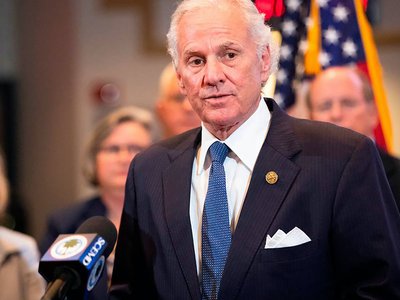The new U.S.-Mexico-Canada Agreement can benefit female business owners by reducing the cost of transporting goods and services across borders, participants underscored during a recent forum on “Women’s Global Trade Empowerment” hosted by the Commerce Department.
Indeed, more practically utilizing the newly implemented trade pact among the U.S., Mexico, and Canada is a critical basis of advancing the economic empowerment of women.
Bringing together trade experts and female business owners from the three nations, the virtual forum highlighted pragmatic ways in which women can thrive in international trade through dynamic opportunities generated by the U.S.-Mexico-Canada Agreement.
In particular, forum participants discussed topics such as trade finance, e-commerce, and direct investment while also featuring women-owned companies that have successfully exported to North American markets through value-added activities.
The goal of the ongoing Women’s Global Trade Empowerment Forum is to ensure women’s access to opportunities related to international trade and investment.
For the United States, strong relationships with Canada and Mexico are vital to ensure economic prosperity and regional security. Over 12 million U.S. jobs depend on trade with Mexico and Canada, many of which are in manufacturing and agriculture.
Women make up 26.2% of America’s agricultural workforce and 29.4% of the manufacturing workforce. By continuing trade facilitating measures, the trade pact known as USMCA can generate more and greater opportunities for women-owned businesses.
On that front, it is notable that the Office of the U.S. Trade Representative and the Commerce Department are two of the 10 key agencies facilitating the Trump administration’s Women’s Global Development and Prosperity initiative, spearheaded by first daughter and presidential adviser Ivanka Trump and launched in February 2019.
As outlined in the initiative, one practical objective is to enhance “women’s access to capital, markets, networks, and mentorship to aid women in establishing and growing their businesses.”
As exemplified in the Women’s Global Trade Empowerment Forum, the U.S.-Mexico-Canada Agreement provides a channel to advance entrepreneurial dynamism and empowerment through freer trade. This is critical to ensuring the success of Ivanka Trump’s initiative.
The presidential memorandum on promoting Women’s Global Development and Prosperity explicitly points out:
It is the policy of the United States to enhance the opportunity for women to meaningfully participate in, contribute to, and benefit from economic opportunities as individuals, workers, consumers, innovators, entrepreneurs, and investors, so that they enjoy the same access, rights, and opportunities as men to participate in, contribute to, control, and benefit from economic activity.
Empowering individuals—women as well as men—with more and greater economic opportunities is really about advancing their economic freedom.
Indeed, promoting economic freedom at home and abroad is a crucial pillar of America’s strategic foreign policy engagement that not only will advance U.S. interests but cement foundations of free-market principles and defend democratic values.
According to The Heritage Foundation’s data-driven annual Index of Economic Freedom, liberalized economies don’t only have higher levels of entrepreneurial dynamism, higher standards of living, and lower rates of poverty. Such economies also show greater democratic governance and more social progress.
Reaching a growing audience around the world since its inception, the Women’s Global Development and Prosperity initiative has become a unique and practical tool to more effectively encourage entrepreneurship, push private enterprise, and increase innovation through free-market initiatives and structural reforms that ensure nurturing economic environments and advance economic freedom.
As outlined in the presidential memorandum, “accelerating women’s economic empowerment around the world is integral to enabling developing countries to achieve economic self-reliance and to become greater trading partners with the United States.”
Ensuring and spreading economic freedom for women is the most effective and practical way to empower them and to propel an economy forward.






